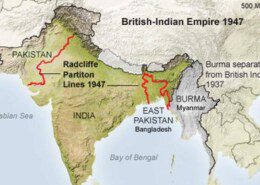Although pressure organizations have a significant impact on governance, there have been questions raised about the groups’ funding, representativeness, and ties to the government. Talk about it.
The Representation of the People’s Act (RPA) is an act of Parliament enacted under the Article 327 of Indian Constitution. It provides for seat allocation, delimitation, administrative machinery for conduct of elections, the qualifications and disqualifications, electoral offences and dispute redresRead more
The Representation of the People’s Act (RPA) is an act of Parliament enacted under the Article 327 of Indian Constitution. It provides for seat allocation, delimitation, administrative machinery for conduct of elections, the qualifications and disqualifications, electoral offences and dispute redressal in connection with such elections etc. In these seven decades since its enactment, the number of voters, the extent of geographies, the political issues & discourse, the diversity and above all the technology, communications & connectivity, access and work processes have changed. Therefore, it is time for a comprehensive review and analysis of the lessons learnt from elections in India:
Electoral funding: Lack of transparency, widespread corruption, and the pervasiveness of socalled ‘black money has led to increase in cost of fighting elections. It appears that the provisions under Section 77(1) of RPA 1951 for free and fair conduct of polls, have proved to be ineffective.
Hate speech: Advancement or endeavour to advance ill will and scorn amongst various gatherings of individuals is both a degenerate practice under Section 123(3A) and a discretionary offense under Section 125 of RPA, 1951. Still, instances of hate speech are common during election times.
Campaign silence: Section 126 of RPA prohibits displaying any election matter by means, inter alia, of television or similar apparatus, during the period of 48 hours before the conclusion of polling. However, in the light of the increasing influence of digital media, enforcing this provision has become increasingly onerous.
Paid news: Section 123(4) of RPA 1951 provides for disqualification of person from the election under Section 8A of RPA if a candidate or his agent publishes false statements related to the character of other candidates. Still, these kinds of instances are common during election times.
Sanctity and updation of electoral rolls: Part IIB, Part III and Part IV of RPA 1950 has provisions for electoral rolls for various levels of elections. Still, there are various cases of misrepresentation and duplication in the electoral rolls. Further, new registrations to the rolls is a difficult task.
Freebies: Subramaniam Balaji’s case The political parties are privileged to make all kinds of promises and the SC in (2013) held that such promises cannot be termed as corrupt practice, falling within the ambit of Section 123 of RPA. But the court noted that such offers hampered the very idea of free and fair elections. In view of this, the aforementioned provisions of RPA need strict enforcement to strengthen Indian electoral system. Further, various amendments are needed/proposed in the Representation of People Act, like: Election
Finance: Insertion of a new Section 77A and replacement of Section 29C by a new Section 29D which require disclosure of the particulars of any individual contribution received.Also, provision for imposition of fine on political parties under Section 29G for nonx compliance with the disclosure provisions is needed.
Regulation of Political Parties and Inner Party Democracy: Insertion of a new Chapter IV C deals with “Regulation of Political Parties”, and the ECI’s power to de-register a party in cases of non-compliance. Further, amendment in Section 29A (5) directs the parties to shun violence for political gains, and avoid discrimination.
Paid News and Political Advertisements: Bringing clarity in definitions of “paying for news”, “receiving payment for news” and “political advertisement” in Section 2. Making “paying for news” / “receiving payment for news” an Electoral Offence and providing stringent punishment thereto under Section 127 B and addition of New Chapter VII B in Part V prohibiting the State/Central government sponsored advertisements. These relevant reforms in RPA are the need of the hour to overcome the contemporary challenges and enable a robust and fair electoral system in India.
See less

A pressure group is an interest group organized to promote the interests of its members by influencing the policies of the government without seeking to acquire/exercise the formal powers of the government. They use instruments like lobbying campaigns, polls etc. Different types of pressure groups fRead more
A pressure group is an interest group organized to promote the interests of its members by influencing the policies of the government without seeking to acquire/exercise the formal powers of the government. They use instruments like lobbying campaigns, polls etc. Different types of pressure groups found in India are business groups, trade unions, peasant groups, student groups, caste and religious associations, women’s associations etc. These pressure groups play significant role in governance in following ways:
However, there are issues related to transparency in representativeness of pressure groups, their funding and their relation with the Government:
Despite these limitations, pressure groups are considered as an indispensable and helpful element of the democratic process as well as societal welfare. The government should strengthen mechanisms to increase transparency and accountability as well as legitimacy of the pressure groups so that more inclusive policy formulations can take place.
See less